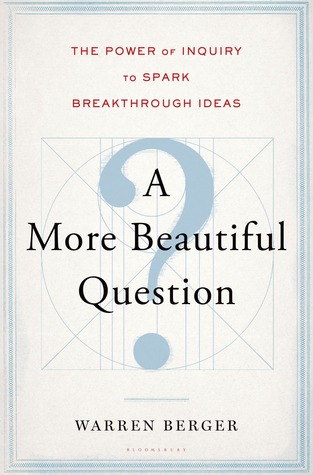These days I’ve become more fascinated by the power of questions and the journey to unlock really good questions to activities, decisions, and the world around me. In my research on the art and science of questioning, I came across the book “A More Beautiful Question The power of inquiry to spark breakthrough ideas” by Warren Berger. As soon as I got my hands on the “A More Beautiful Question” book, I started reading it and finished it recently.
A “beautiful question” is an ambitious yet actionable question that can begin to shift the way we perceive or think about something – and that might serve as a catalyst to bring about change. – Warren Berger
I had always been fascinated how as a child we “naturally” ask a lot of questions. However, as we grow up, we don’t ask that many questions or ask enough questions at all. The book has a lot of interesting insights and detailed analysis on questioning.
“Preschool children, on average, ask their parents about 100 questions a day. By middle school, they’re pretty much stopped asking.” – “The Creativity Crisis”, Newsweek.
Warren states in the book that many educators and learning experts contend that our current system of education does not encourage, teach, or in some cases even tolerate questioning. Teachers for the most part are also constrained by the course overload that they have to cover within a certain time frame leaving little to no time for questioning. An interesting revelation was that “schools in many industrialized nations were not, for the most part, designed to produce innovative thinkers or questioners-their primary purpose was to produce workers.”
“Our grandfathers and great grandfathers built schools to train people to have a lifetime of productive labor as part of the Industrialized economy. And it worked.” – Seth Godin
We now live in knowledge based societies and need for people to be more creative and independent thinkers. The ability to ask really good questions thus has become a key skill in the world we all live in today. Growing up, our home and school environments play a huge role in helping/hurting our own questioning skills which carries over to how we work, communicate, and go about our lives. Questions are beautiful and we need them in today’s world more than ever before.
For more insights into Questions, I recommend reading “A More Beautiful Question The power of inquiry to spark breakthrough ideas” by Warren Berger.











